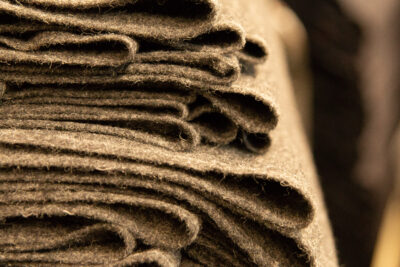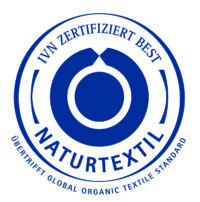Wool and other fibers
High-tech from nature
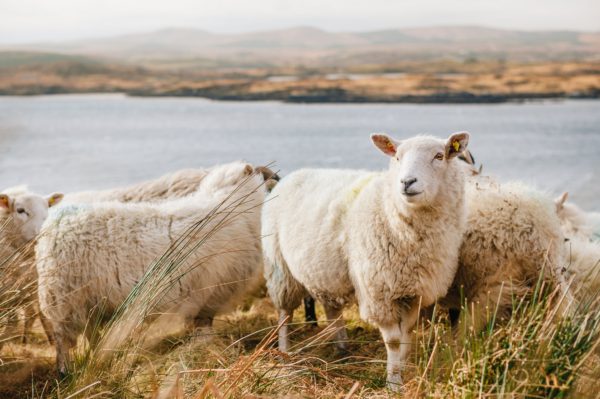
Virgin wool
Unlike cotton, sheep’s wool does not absorb moisture when wet.
It was created by nature as a perfect insulator.
Wool hair is a protein fiber and is similar in composition to human skin.
Wool has an excellent heat retention capacity and regulates skin respiration and oxygen exchange.
Wool has a moisture-regulating effect, i.e. it can absorb up to a third of its own weight in moisture without feeling damp.
Only wool that has been obtained exclusively by shearing live animals can be described as pure new wool.
It is considered to be wool of particularly high quality.

Merino wool
Although the use of wool was already known in Europe several thousand years ago, the production of fine wool on a large scale only became established in the early Middle Ages.
The exceptionally soft and fine wool of the Merino sheep was particularly sought after.
The Merino sheep spread throughout Europe and made fine wool the dominant wool type.
Merino wool has an average fiber count of approx. 18 micrometers, making it very fine and extremely comfortable to wear.
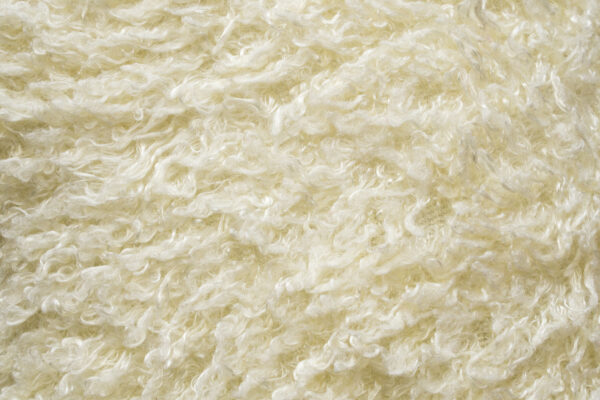
Durability and high quality
Wool consists of fibrous structural proteins or scaffold proteins or keratin.
Keratins are insoluble in water, acids and bases and are not attacked by most proteolytic enzymes, so they are also indigestible (except by clothes moths).
The wool we use is therefore very resistant, ecological and 100% biologically renewable.
Natural raw material and certifications
Wool grows completely naturally all year round on millions of sheep, and is the product of water, air, sunlight and grass.
It is therefore a completely renewable and natural fiber.
When a wool fiber is disposed of, it decomposes naturally in the soil within a few years, slowly releasing valuable nutrients back into the earth.
GOTS
The Global Organic Textile Standard defines a strict set of rules for organic fibers. This seal is the world’s leading standard for the production and processing of textiles made from organically produced natural fibers.
The certification defines holistic requirements along the entire production and value chain. For further information on licensing, please use the public database at Certified Suppliers (global-standard.org). Please note that not all items in our online store are GOTS-certified.
IVN
The IVN is an association of over 100 companies from all areas of the leather and textile industry.
Further information can be found at https://naturtextil.de/.
Please note that not all items in our online store are IVN-certified.
OEKO-TEX
The Oeko-Tex Standard 100plus product label identifies textiles that have been successfully tested for possible harmful substances and manufactured exclusively in environmentally friendly and socially responsible production facilities.
Fiber lexicon
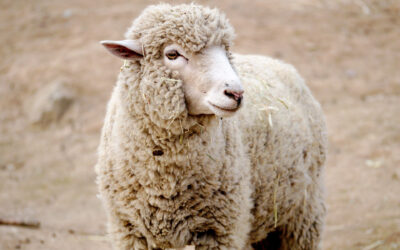
Loden – properties & care instructions
